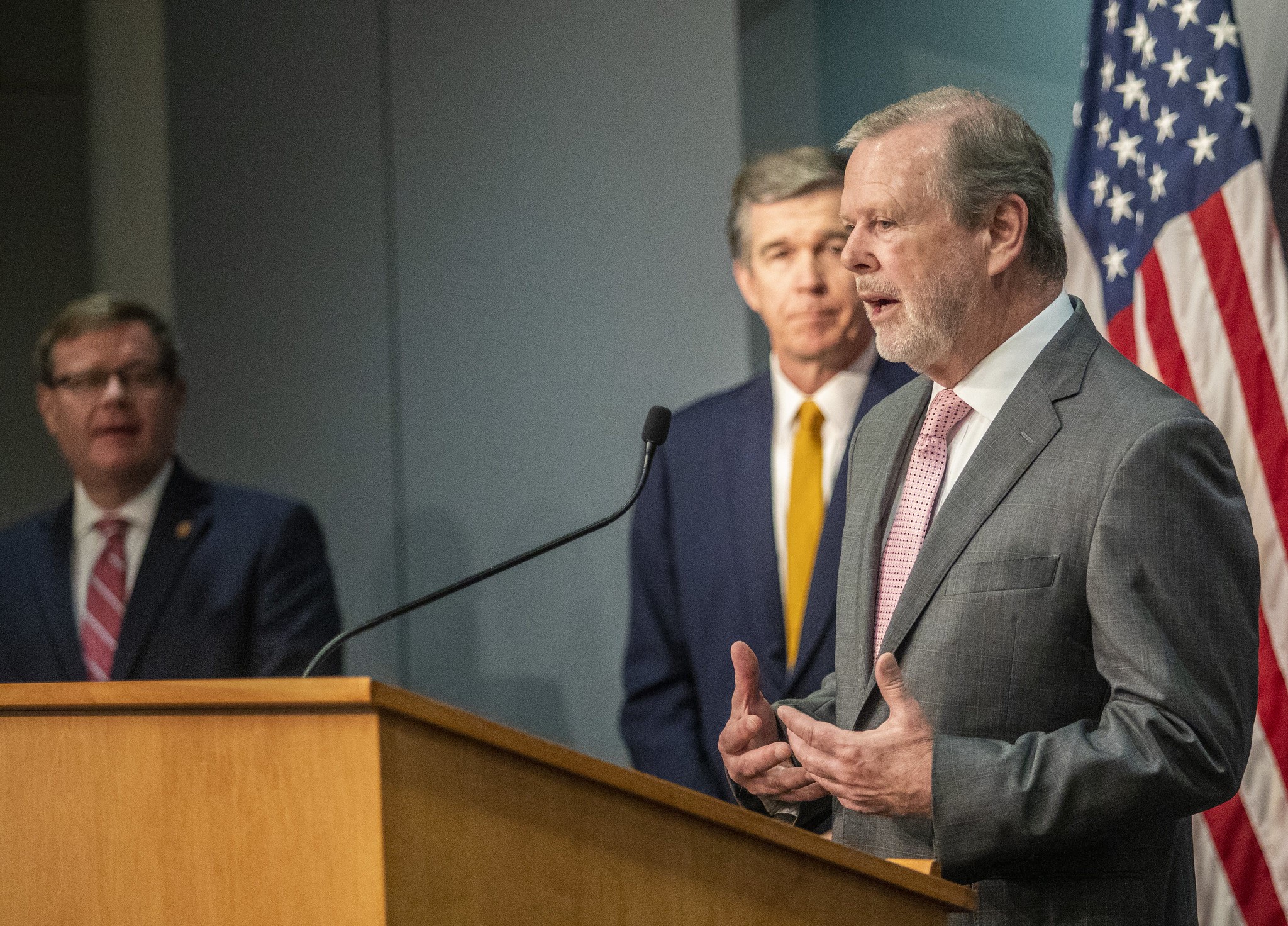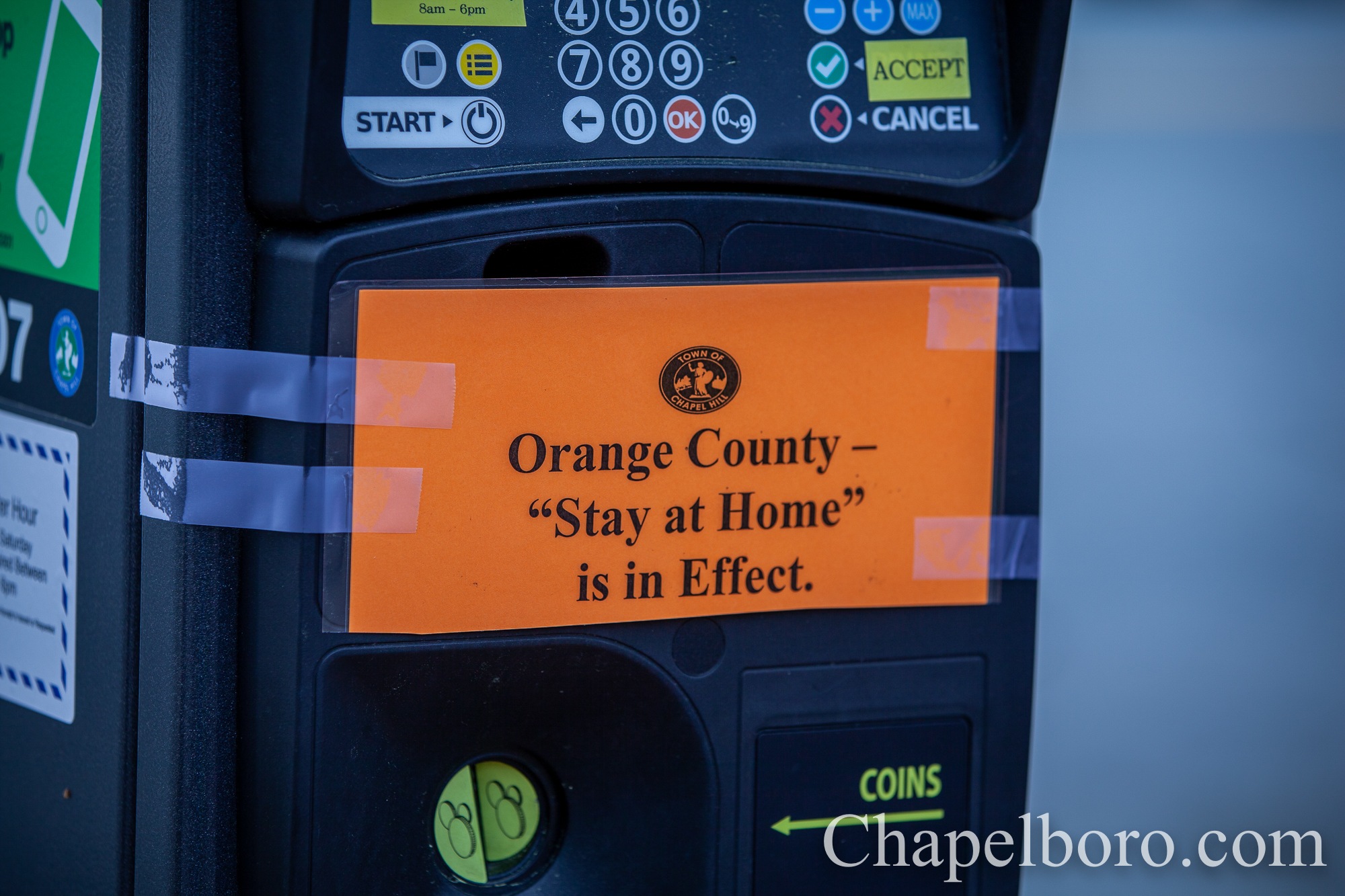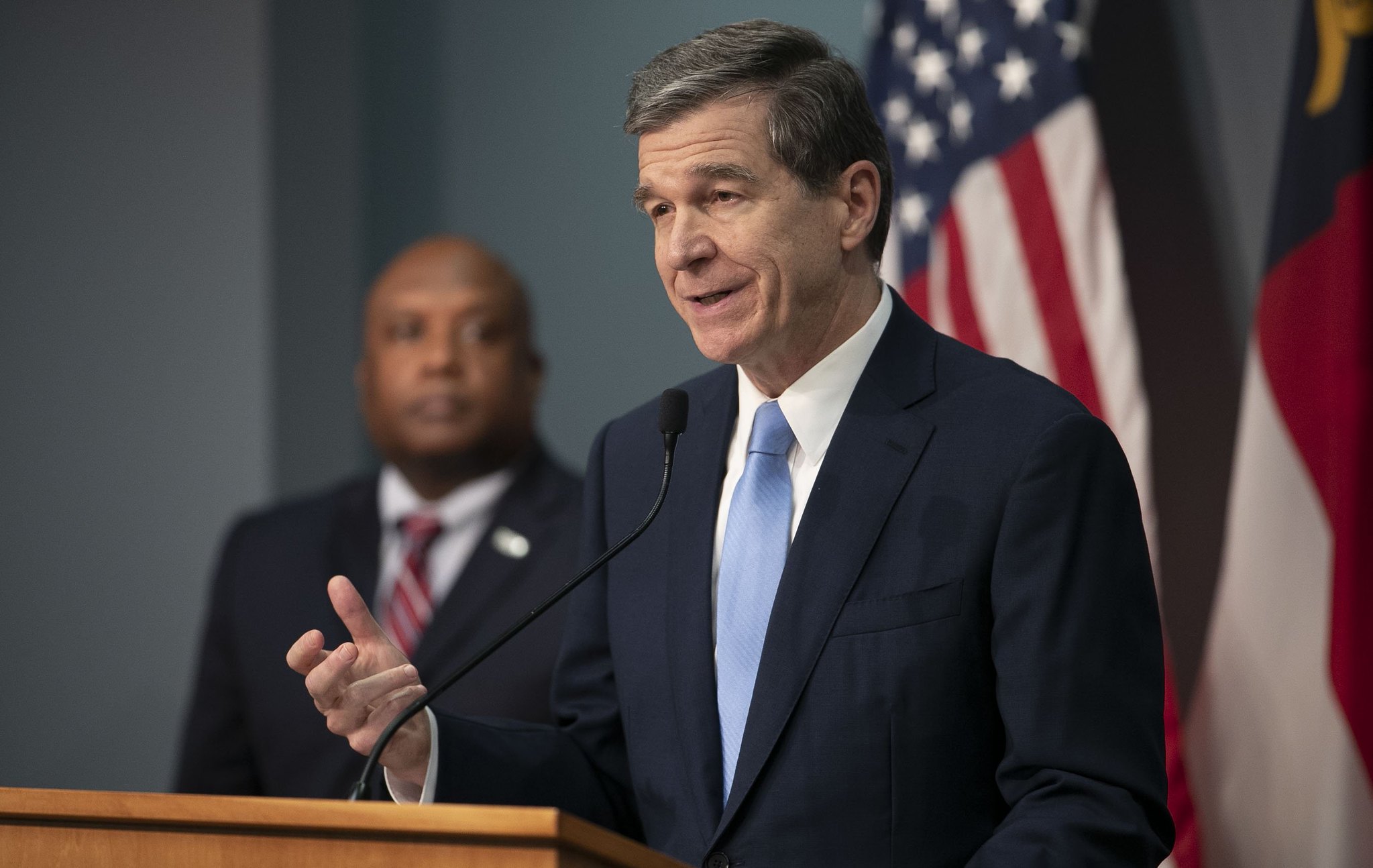North Carolina Governor Roy Cooper signed a new executive order on Tuesday aimed to help workers furloughed by employers amid the COVID-19 pandemic. He also spoke about the budget proposal his administration plans to make at the General Assembly’s meeting next week and when a decision will be shared regarding the state’s stay at home order.
The executive order is to help employees given a severance or furlough payment when laid off in the last month, according to Cooper. The order makes these employees now able to qualify for unemployment compensation, the latest step the governor has taken to ease such measures.
“Our state has sent almost $580 million to [more than] 257,000 people who’ve filed unemployment claims since the start of this pandemic,” Cooper said in a press conference on Tuesday. “The Employment Security Commission continues to make improvements in its filing process and call center, but more work must be, and is being, done.”
With the General Assembly meeting on Tuesday, April 28, Cooper also said he will be bringing a budget proposal to the table with other legislators to address the state’s economy. He said the central areas the proposal seeks to address are public health and safety, schools, core state government services, small businesses and local government assistance.
The governor also said the state is aiming to provide further relief to small businesses with the Rapid Recovery Program, which is now active and is run through the non-profit Golden LEAF Foundation.
While Cooper did not announce an extension or end to North Carolina’s stay at home order, which he issued in late March in an effort to mitigate the spread of the coronavirus, he indicated a decision would be made by the end of the week. He also commented on the frustration of some North Carolinians who gathered in Raleigh on Tuesday to protest the stay at home order. He said people need only to look at New York and other states with overwhelmed hospitals to see the importance of staying at home to thoroughly mitigate the virus’ spread.
“I think most everyday North Carolinian understands we have to approach this responsibly,” he said, “with public health, safety and saving lives at the forefront, but also understanding we do need to ease restrictions in order to cushion this blow to the economy and get more people back to work.”
The current statewide stay at home order is slated to last through April 30.
Photo via NC Department of Public Safety.
Note: 97.9 The Hill has been Chapel Hill and Orange County’s daily source for free local news since 1953. Please consider making a donation to continue supporting important local journalism like this.
Related Stories
‹

Here's What You Need to Know About NC's New Stay-at-Home OrderEarlier this week, North Carolina Governor Roy Cooper announced a nightly curfew will be put in place for the state amid rises in new COVID-19 cases and other increasing statewide trends. Cooper and Dr. Mandy Cohen, the secretary for the North Carolina Department of Health and Human Services, said the record-breaking single-day numbers for new […]
![]()
Lawsuit Filed to Block NC Governor's Order on ChurchesConservative Christian leaders sued North Carolina Gov. Roy Cooper on Thursday to get thrown out his latest restrictions on indoor religious services during the COVID-19 pandemic. They argue the limits, initiated by Cooper with health in mind, violate their rights to worship freely. Two Baptist churches, a minister and a Christian revival group filed the […]

Sen. Berger Asks Gov. Cooper to Let Counties Reopen BarbershopsOne of North Carolina’s most powerful Republican elected officials has called on Democratic Gov. Roy Cooper to give county governments the ability to reopen barbershops and hair salons now. Senate leader Phil Berger said on Wednesday that most Southeastern states have allowed these personal service businesses to reopen in some capacity. They are mostly run […]

Governor Cooper Defends Rules for Businesses, ChurchesStating “pandemics cannot be partisan,” North Carolina Democratic Gov. Roy Cooper on Tuesday defended his eased stay-at-home order as criticism mounted from elected Republican officials and demonstrators who gather weekly outside his home. Cooper’s altered COVID-19 order, which took effect Friday, allowed more businesses to open to customers as long as social distancing rules are […]

University Place Shares Plans for Limited Reopening with NC's Phase 1University Place will be among the businesses to reopen as the rest of North Carolina begins its Phase 1 this weekend. The shopping center will be opening in a limited capacity starting Saturday, May 9, at 10:30 a.m., with some businesses still remaining closed due to Governor Roy Cooper’s executive order. Some businesses with interior […]

Orange County to Follow NC's Phase 1 Guidelines, Ending County Stay-Home OrderOrange County will end its stay at home order on Friday, May 8, to allow residents to fully comply with state guidance as it enters Phase 1 of gradual reopening. The county shared a release on Wednesday acknowledging it will let the county order expire, but reminding residents they still fall under the statewide stay […]

Gov. Cooper: North Carolina to Move to Phase 1 Beginning FridayNorth Carolina Governor Roy Cooper said he will sign an executive order for the state to enter Phase 1 of lifting the restrictions issued during the COVID-19 pandemic. Cooper said North Carolinians’ efforts to stay home, use face coverings and physically distance themselves when in public have affected the virus’ spread enough to move into […]

Orange County Extends Stay at Home Order to Coincide with North Carolina'sOrange County extended its county-wide stay at home order past its initial April 30 expiration date. County officials, in cooperation with the mayors of Chapel Hill, Carrboro and Hillsborough, decided to extend the order until May 8, according to a release from Orange County. The new length of the order coincides with the extension of […]

Hundreds Demand North Carolina Governor End Stay at Home OrderHundreds of people angry and frustrated with North Carolina Gov. Roy Cooper’s stay-at-home order designed to blunt COVID-19 marched on Tuesday around his home, demanding that he cancel it now to unleash the state’s economy. Carrying placards and banners and chanting, the crowd gathered in a parking lot before being escorted by Raleigh police motorcycles to walk […]

Cooper Signs Order to Help Furloughed Workers, Says Decision on Stay at Home Extension Coming SoonNorth Carolina Governor Roy Cooper signed a new executive order on Tuesday aimed to help workers furloughed by employers amid the COVID-19 pandemic. He also spoke about the budget proposal his administration plans to make at the General Assembly’s meeting next week and when a decision will be shared regarding the state’s stay at home […]
›










